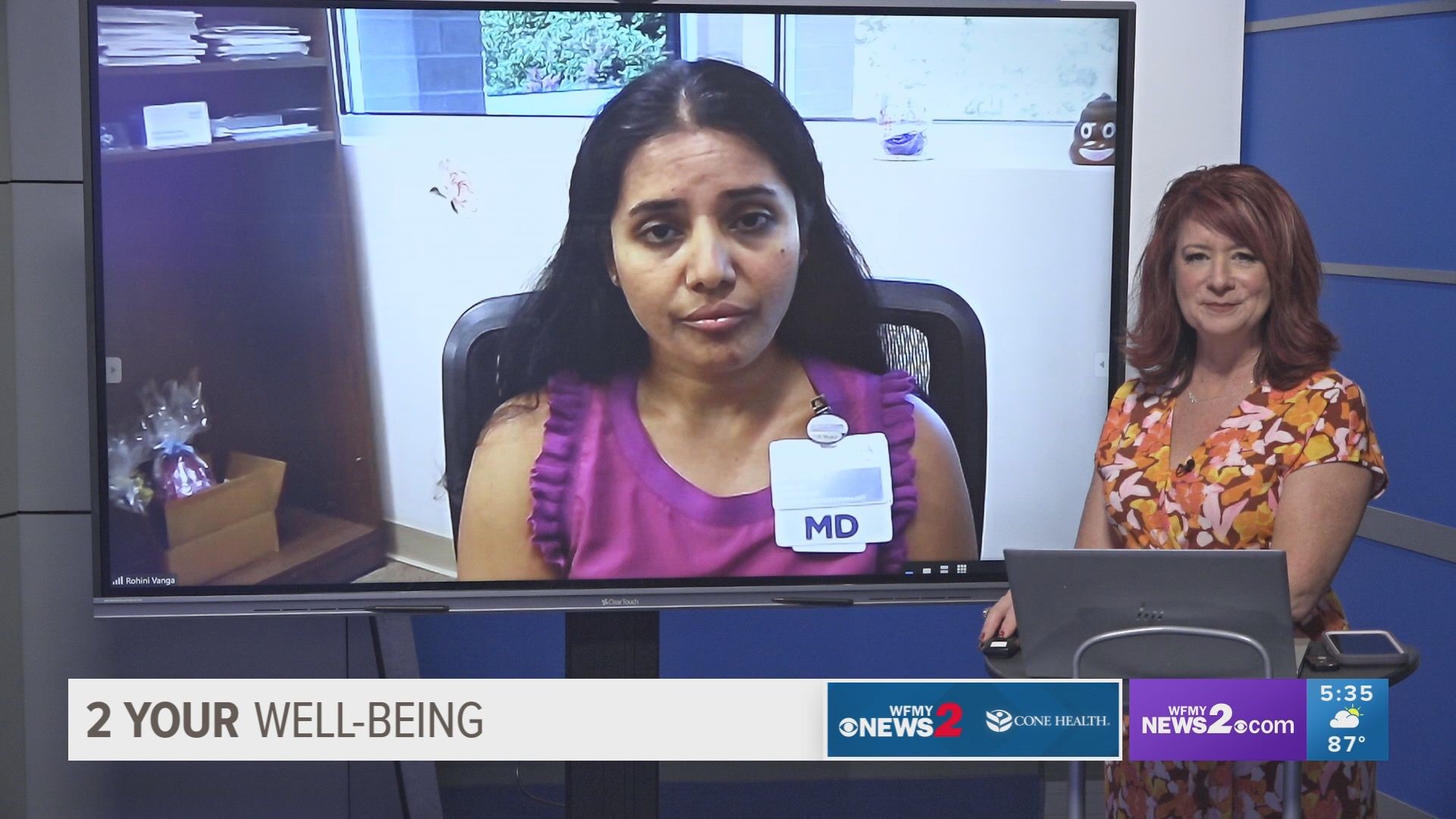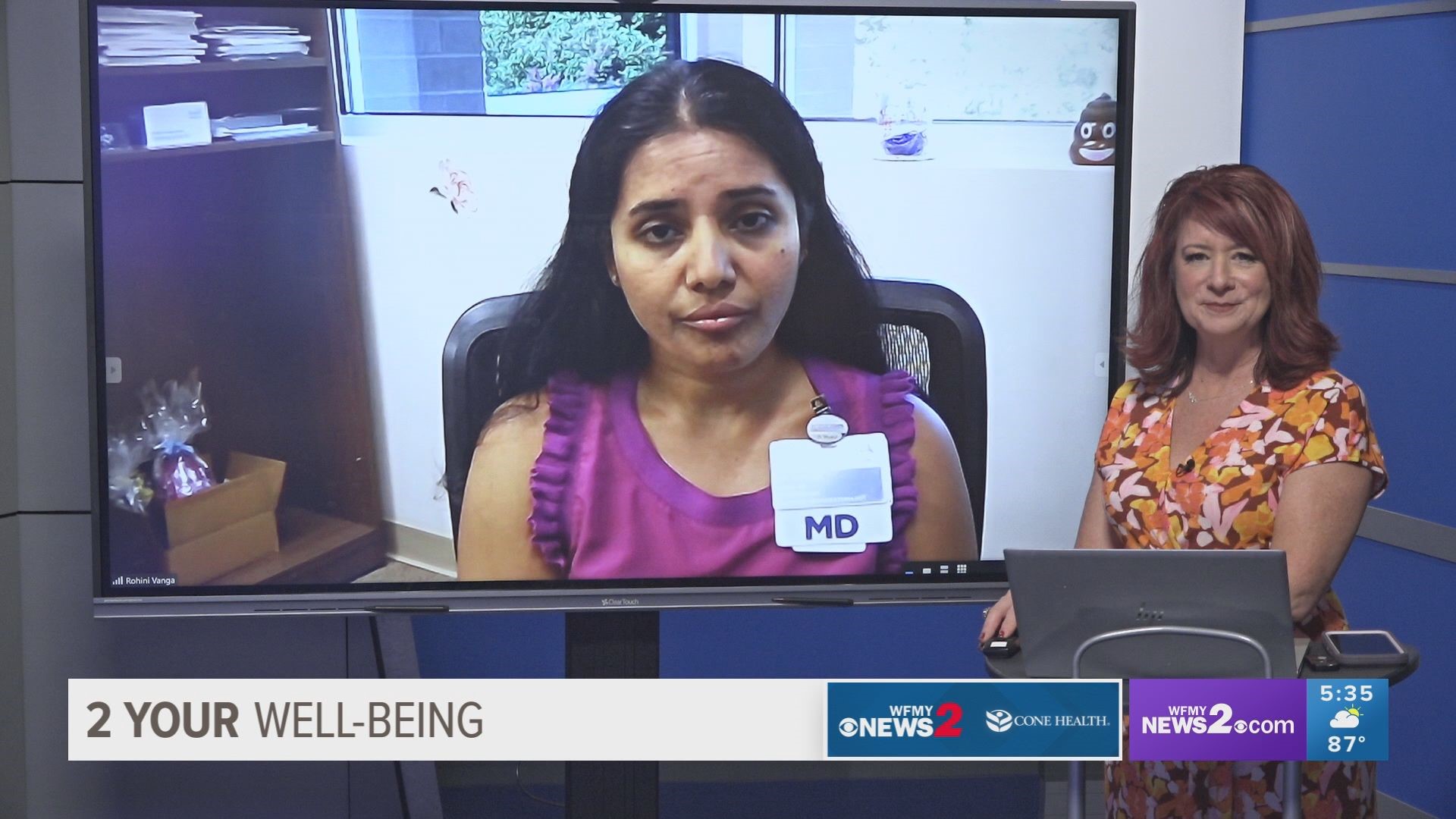GREENSBORO, N.C. — We all know what we eat plays a big part of our overall health, but do you ever think specifically about your gut health?
"Don't underestimate the digestive system like hearts, lungs and kidneys which are vital organs, the digestive system is also very important," said Rohini Vanga, MD, with Cone Health Alamance Gastroenterology.
Gut health is about a diverse gut microbiome, which is a home for bacteria. It's all about the balance between the good and bad bacteria.
A healthy gut helps maintain your immune system and allows your body to fight off illnesses. It can also have a positive impact on your mental well-being.
There are many things that contribute to a healthy guy, but a big part is what you eat. A well balanced diet is key.
Things that can lead to poor gut health are stress, lack of sleep, not enough physical activity and taking unnecessary medications.
Probiotics and fiber can both play a role in your gut health and help keep things moving.
Probiotics are beneficial or good bacteria. The live organisms can help maintain a healthy gut biome. You can get them in the form of food and supplements.
Not everyone needs to take probiotic supplements but they can be found naturally in some products people eat and drink everyday like yogurt or kombucha. You should be eating or drinking something with a probiotic daily.
Probiotics can also help with the side effects of some anti-biotics like diarrhea. In this case you can take a probiotic just for a few days or weeks to try and counteract those side effects.
When it comes to fiber you should be consuming 25-40 grams of fiber each day. Most of the fiber you eat is in fruits, vegetables and legumes.
If you are not getting enough and want to add a fiber supplement, slowly add how much you are taking, about 5-10 grams per meal.
Signs you may be having issues with your gut health include feeling nauseous, something not sitting right in your stomach, and irregular bowel movements.
If you have mild symptoms that only last a few days it may just be a reaction to food, but if those symptoms last longer than two weeks, you'll want to go see your primary care doctor.
If you're concerned about your gut health make an appointment with your primary care doctor first. They will then recommend if you need to see a gastroenterologist.


